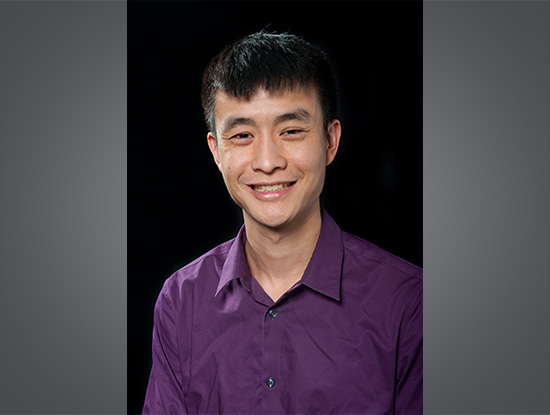You may have heard that your genome is the blueprint for your life. That’s not exactly correct. It’s more like a parts list — or, in the analogy preferred by Birmingham biotech entrepreneur Michael Heaven, Ph.D., a recipe. “It’s the ingredients for a person," Heaven says, "but it doesn't factor in critical aspects that impact health, including stress, injuries, diet and exercise that over a person’s lifetime are equally important.”
Heaven, a UAB-trained biochemist who is the founder and CEO of Birmingham-based Vulcan Analytical, is much more interested in the proteome — the collection of proteins made by your genes. “That’s a much more biologically representative measure of health,” he says. “Every cell in the body has the same genes, but the proteins that are actually expressed in an eye cell versus a finger cell make those two parts of the body very different.” Understanding which proteins are active in a patient sample, and how those concentrations change during treatment, for example, could prove much more useful than simply learning about a patient’s genetic makeup. “The vast majority of scientists believe that proteomics has tremendous potential for advancing the diagnosis of disease and development of more efficient drugs,” Heaven says. Danny Hillis, the prolific inventor and serial entrepreneur, made that point in a widely viewed talk at the TEDMED conference in 2010, calling proteomics “the future of medicine.”
An “enabling technology”
So why don’t all laboratories do proteomics? The obstacles, Heaven says, are speed and sensitivity. With today’s next-generation DNA sequencers and data-crunching software, it is becoming routine to analyze a person’s genome. In contrast, "it’s currently far more difficult due to sensitivity limitations to assay the entire human proteome," he says — a job done with a machine known as a mass spectrometer. Vulcan Analytical specializes in a "novel mass spectrometry acquisition and data analytics software workflow" that is quicker and more sensitive than competing state-of-the-art methods, Heaven explains. Vulcan’s latest patent-pending product, microSWATH, which is set to launch this year, “can analyze more than 70 percent of the entire human proteome in about an hour,” Heaven says. “That’s basically doubling what is currently possible with the latest instruments available. And we’re working on ideas to get that percentage up even higher." Equally important features of microSWATH are its design to handle biological fluids — such as plasma and blood — that can be analyzed from patients, "which has also been a major problem for mass spectrometry-based proteomics analysis due to the large dynamic range of proteins in biosamples,” Heaven says. Screenshot from Vulcan Analytical's Protalizer analysis of tumor vs. non-tumor biopsies from renal clear cell cancer patients. The image shows upregulation/increased relative abundance of a peptide belonging to the protein, vimentin, in a tumor sample.
Screenshot from Vulcan Analytical's Protalizer analysis of tumor vs. non-tumor biopsies from renal clear cell cancer patients. The image shows upregulation/increased relative abundance of a peptide belonging to the protein, vimentin, in a tumor sample.In the near term, "microSWATH applications will be focused on creating a knowledge base that predicts disease diagnosis by closely monitoring hundreds to thousands of protein concentration changes when compared to a large pool of healthy human samples with similar demographics," Heaven says. But the larger goal "is to be able to analyze any patient’s specimen and rapidly screen for many common and rare diseases using high-quality, publicly available research that is able to be validated internally by the company in trials.”
Molding an idea into a business
Heaven, a 2014 graduate of UAB’s doctoral program in biochemistry, also got his undergraduate degree in the UAB College of Arts and SciencesDepartment of Chemistry. As an undergraduate in the chemistry honors research program (now the Chemistry Scholars Program), Heaven studied protein unfolding with professor Donald Muccio, Ph.D., and learned that he enjoyed research.Later, during his doctoral training, the idea for Vulcan Analytical was born in the lab of Michael Brenner, Ph.D., Heaven’s research mentor and a professor in theDepartment of Neurobiology. “We were doing proteomics on protein aggregates in a rare disease called Alexander disease,” Heaven says. “While doing that work I realized there were many shortcomings in how mass spectrometry proteomics is done. So Dr. Brenner basically let me do my own project and develop the methods that became the initial technology at Vulcan Analytical while doing my graduate work.”
The proprietary analysis methods that Heaven developed clearly had potential for commercialization, so he began working toward a patent with the UAB Research Foundation, now part of the UAB Bill L. Harbert Institute for Innovation and Entrepreneurship. “I got my first experience drafting patent documents, understanding the type of data that needed to be included, and going through that whole process, which takes years,” Heaven says. “That was invaluable experience as we are applying for new patents at Vulcan Analytical.”
"Dr. Brenner basically let me do my own project and develop the methods that became the initial technology at Vulcan Analytical while doing my graduate work."
Skills to succeed
Brenner encouraged Heaven to take an MBA-level course in entrepreneurship at the Collat School of Business, taught by biotech veteran Erik Schwiebert, Ph.D., the CEO of Birmingham-based DiscoveryBioMed.The Research Foundation staff also encouraged Heaven to apply for Alabama Launchpad, an annual competition that awards high-potential businesses with startup funding. “Erik’s class was very useful, including helping me develop my PowerPoint and pitch for Alabama Launchpad,” Heaven says. He won $22,000 in 2012 as part of Launchpad, “and I also learned how to make a business pitch and present in front of potential investors,” he adds.
Today, Vulcan Analytical has offices at Birmingham's Innovation Depot and its clients include "leading university researchers, government agencies such as the FDA, and pharmaceutical companies," Heaven says. Ultimately, he adds, “we want hospitals to be our customers and to gain insurance and Medicare reimbursement.”


